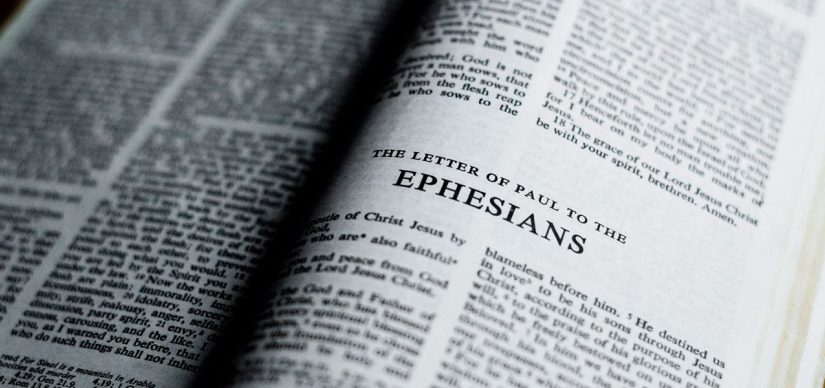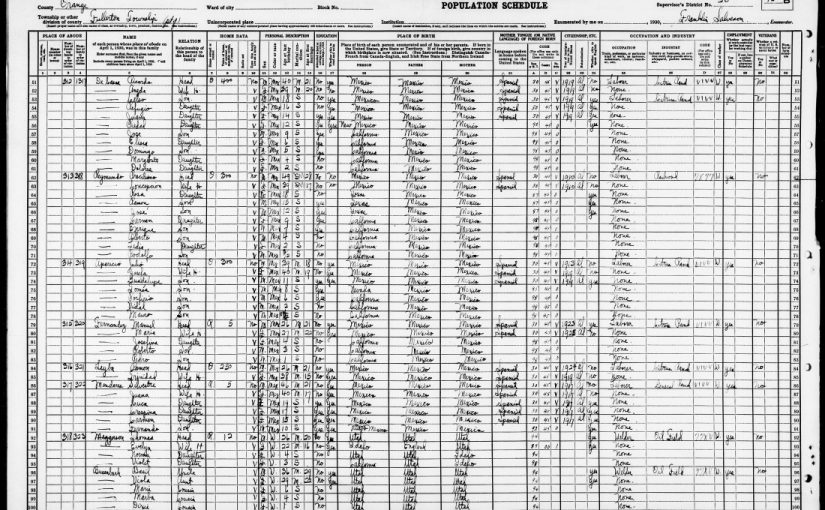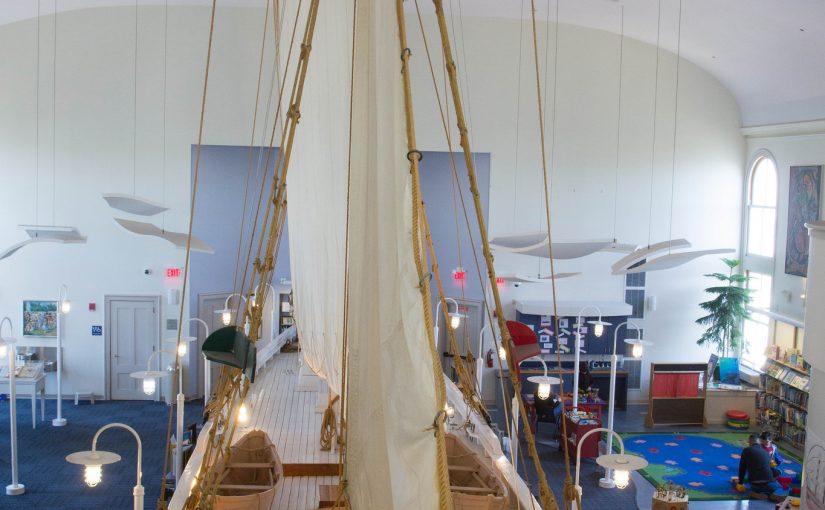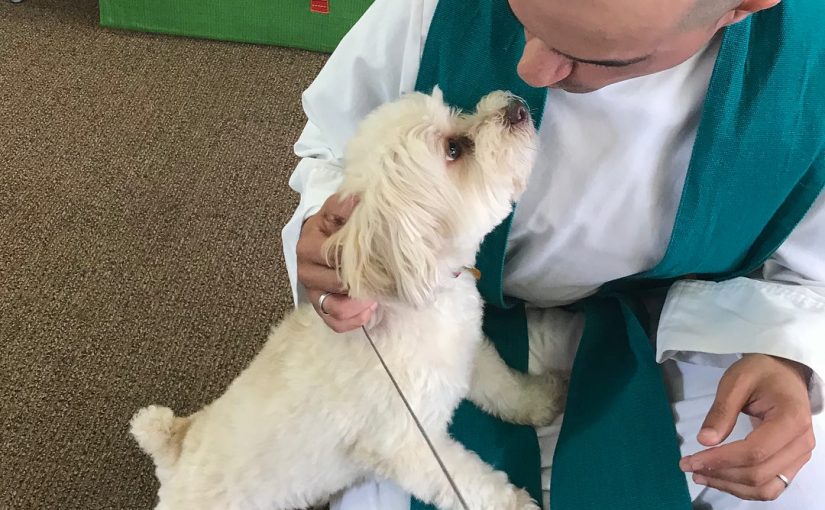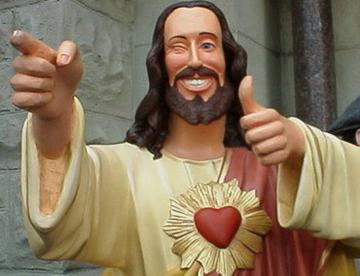Now when the Pharisees and some of the scribes who had come from Jerusalem gathered around him, they noticed that some of his disciples were eating with defiled hands, that is, without washing them. (For the Pharisees, and all the Jews, do not eat unless they thoroughly wash their hands, thus observing the tradition of the elders; and they do not eat anything from the market unless they wash it; and there are also many other traditions that they observe, the washing of cups, pots, and bronze kettles.) So the Pharisees and the scribes asked him, “Why do your disciples not live according to the tradition of the elders, but eat with defiled hands?” He said to them, “Isaiah prophesied rightly about you hypocrites, as it is written,
‘This people honors me with their lips,
but their hearts are far from me;
in vain do they worship me,
teaching human precepts as doctrines.’
You abandon the commandment of God and hold to human tradition.”Then he called the crowd again and said to them, “Listen to me, all of you, and understand: there is nothing outside a person that by going in can defile, but the things that come out are what defile.” For it is from within, from the human heart, that evil intentions come: fornication, theft, murder, adultery, avarice, wickedness, deceit, licentiousness, envy, slander, pride, folly. All these evil things come from within, and they defile a person.”
Mark 7:1-8,14-15, 21-23
My sermon from the 15th Sunday after Pentecost (September 2, 2018) on Mark 7:108,14-15,21-23. Listen to the recording at the bottom of the page or read my manuscript below.
****************************
One of my favorite questions that’s appears on the internet is: can I eat this? Now, the question isn’t from someone wondering if this herb or plant or insect is edible. No, this question shows up when someone wonders if a food is still safe to eat. For example, someone asked if they could eat a tuna fish sandwich they packed for lunch but accidentally left on the kitchen counter all day long. Another person wondered if chicken broth that says it’s good 7-10 days after opening would still be good after 12. And someone else, after accidentally sending fresh green grapes through the wash cycle of their washing machine, posed a question to the entire internet asking if they could still eat them? From the folks finding a potato with a black part in the middle to the people who left tofu in their hot car for far too long – there’s people, everywhere, wondering if they can eat that.
Now we know, from personal experience, that the question they’re asking is a good one. Any food that is undercooked, poorly prepared, or left out in the sun too long will end up becoming something we can’t eat. There’s a lot of food that, when it goes into our mouth, leaves us feeling defiled. The cleanliness of our food, our dishes, and even our hands protects us and our families from food poisoning and illness. Our well-being depends on making sure that whatever we put in our mouth is safe and clean.
Which is why this passage from the gospel according to Mark might make us feel a bit queasy. At first glance, we assume we know what Jesus is talking about because, for generations, we’ve made the Pharisees into the “bad guys.” We imagine they were a group of people who took scripture and turned it into a list of rules that helped them earn God’s love. Since this passage starts with the Pharisees asking a question, we already know they’re wrong so we ignore what they say, skip to verse 15, and tell each other to work on our moral character so that we make Godly choices. But scripture has a habit of inviting us to re-evaluate what we think we already know. And when we stop and listen to the Pharisees’ question – about washing your hands before you eat – we’re left feeling a little askew because that question is completely reasonable. We know, through the God-given gifts of science and medicine, that washing your hands regularly, especially at meal times, is a good thing. It stops the spread of germs and makes sure that the dirt from the day doesn’t end up inside our mouths. As 21st century Americans living in an affluent part of Northern New Jersey where the use of antibacterial gels is so widespread that brand names like Purell are verbs instead of nouns – we’re unsettled by today’s gospel text because the Pharisees’ question is perfectly sensible. And based on the words the Pharisees’ used to frame their question, we know that some of Jesus’ disciples washed their hands just like the Pharisees did. That uneasy feeling we have isn’t because we’re wondering if the yogurt we left out will still be good when we get home later today. Instead, we’re queasy because the people we’re not supposed to like actually made a really good point.
So let’s accept the fact that the Pharisees asked a good question. They had a tradition of washing their hands before they eat and some of Jesus’ disciples did the same. The Pharisees, however, did not wash their hands for hygienic reasons, nor did they think that washing would somehow earn themselves God’s love and blessing. They washed because they took God’s Word seriously. They read their bible and knew that the priests in the Temple washed as a way to keep parts of their lives sacred and holy. The commands to wash are contained in the Torah, in the first five books of the bible, and is part of what’s called God’s law. The law, for the Pharisees, wasn’t a to-do list to earn God’s love. Instead, the law was a gift from God that helped them live a different way. The Pharisees wanted the law to make a difference in every part of their lives so they expanded its application, moving the priestly washing into their everyday lives. This expansion was a tradition created by the Pharisees to protect and nurture their faith, identity, and connection to God. By taking all of God’s gifts seriously, the traditions of the Pharisees were created to show all people that God is active in their lives and in their world. Hand washing made every meal, for every person, sacred; a visible sign that God cared for every part of our lives.
It’s these kinds of traditions that help us seek, discover, and live with the God who is always with us. We create them because they give us life and we pass them on to the ones who come after us because we want them to have that life too. We might, for example, choose to read devotions in the morning and to say our prayers at night. We celebrate certain organ based hymns and guitar heavy songs, letting artists and styles of music define what our church sounds like. We clap, sway, and put our hands in the air while shouting “amen!” Or we stay as silent as a mouse, letting God’s words fill the air around us. Church happens in specific places and in specific ways through the traditions we create and share. When we do church, we are deeply rooted in our traditions. And it’s these traditions that help us be faithful because they make us faith-filled.
But these traditions are just that: they’re traditions. Human beings, with the help of the Holy Spirit, created them as ways to grow our faith and help us see God. Without our traditions, we wouldn’t be who we are. But if we cling to these traditions too tightly, we end up forgetting why those traditions existed in the first place. They exist so that we can be God’s people in the world; so that we can love God with all our heart, soul, and mind; and love our neighbors as ourselves. When our traditions wall us in, cutting us off from the world and the people around us, then our traditions are getting in the way of us being the church. Part of following Jesus means we need to be a community that invites self reflection, asking out loud if how we do things is truly the way God wants us to be in the world. There are parts of our tradition that God wants us to keep doing and sharing. But if we’re honest, there are other bits and pieces that God might be inviting us to let go because they way we’ve always done things is now getting in the way of what Jesus is doing next. I’ll admit that looking at traditions in this way is pretty scary. It’s hard to let go of something that gave us so much life. But even in the moments when it feels as if we’re losing who we are, we are invited to remember that what fed our traditions is still feeding us now. Jesus, is here, right now, giving us courage and peace as we struggle through change and transition. We might not know where Jesus is taking us and we might not know, at first, what new traditions we’ll need to be the people God wants us to be. But when we follow Jesus, holding tight to the center of his life and to his Cross, everything we do will be grounded in a love that opens up all sorts of possibilities. Because Jesus will never give us anything we can’t fully eat, swallow, and digest as we grow into that new thing he is making us into.
Amen.
Podcast: Play in new window | Download


